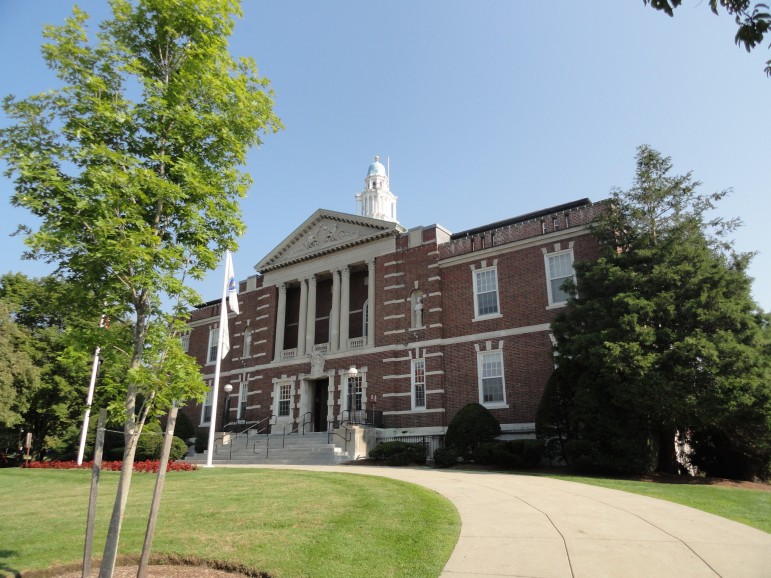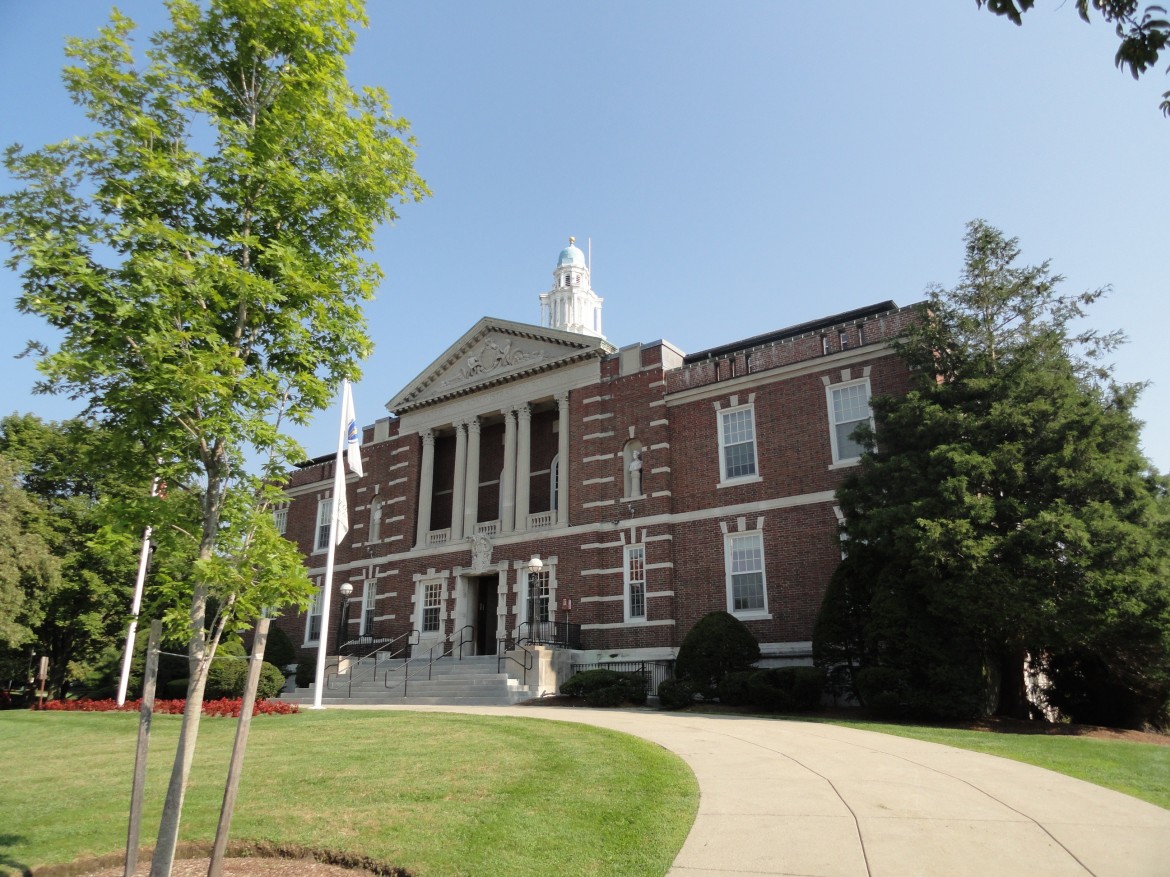
The group looking at making changes the Watertown Town Charter talked about their views on changing to a mayor, how to make the Town government more responsive to residents and how to get residents involved in the charter review.
Last week, the Charter Review Committee held its second meeting, and welcomed members of the Collins Institute, the UMass-Boston based group with expertise in municipal governments that is working with the group on the Charter Review.
Going into the charter review, some residents have called for Watertown to move from the current strong-town-manager model of government to one headed by a mayor.
The Charter Review Committee can make major changes, said Michael Ward of the Collins Institute, such as the form of government, or smaller changed such as who reports to the Town Manager, who reports the Town Council, and which positions and boards are elected vs. appointed.
Council Vice President Vincent Piccirilli said that he believes the current form of government, a city with a town council and strong town manager, has “stood the test of time” over the past 40 years, while acknowledging that no form of government is without its faults.
He said he believes the strong town manager style includes more checks and balances and is more accountable to voters. One major difference with between a strong town manger and a mayor is who sets the policies and makes the budget.
“With a manager, the council sets budget policy guidelines, the manager creates a budget based on the budget policy guidelines,” Piccirilli said. “The mayor sets the policy while setting the budget and the council just approves it.”
Councilor Caroline Bays did not weigh in on whether she prefers a town manager or a mayor, but said she has heard a clear message from Watertown residents.
“I feel citizens don’t feel a lot of responsiveness from the government,” Bays said. “Is there a way to put in the charter increased responsiveness to the needs and voice of the citizens of Watertown?”
Councilor Ken Woodland said he also wanted to talk about what works with the current government, and pointed to the strong financial situation maintained by the Town.
“We are probably one of the best financially managed municipalities in the Commonwealth,” Woodland said. “No one else in the Commonwealth is building two schools with Net Zero Energy without some sort of debt exclusion (tax increase).”
Resident member Marcia Ciro said when she first started looking into ways to improve the Town’s government several years ago she thought that going to a mayor was the right thing, but as she looked more into it she is not sure.
She said there are things that she would like to see changed in the current government.
“I feel like we are not getting the best of the best in Watertown. Having someone here for long duration, there are two sides to that,” Ciro said. “Ya, you get continuity, but you don’t get a lot of new blood or a lot of innovation.”
Ciro added that she thinks the balance of power is skewed toward the administration (the Town Manager and his staff).
Councilor Angeline Kounelis said many point to Somerville or Cambridge as examples for Watertown to look at, but she said that their budgets are much larger than Watertown ($152 million in Watertown, $715 million in Cambridge, $262 million in Somerville).
Anne Fitzpatrick, a resident appointed to the committee, said she has followed the Town government and has been frustrated in her own dealings with the town by the “passing the buck” within the administration and between the Council and Town staff.
“The Town Manager takes his direction from the Council and the councilors says we tell the Manager what to do. Then he says they didn’t tell me specifically what to do,” Fitzpatrick said. “How do we drill this down so we have more accountability? Maybe a mayor is a solution, maybe strengthening the form of government we have to get more accountability is the solution.”
One thing Fitzpatrick has observed is that the Councilors are part time, paid $5,000 a year, but the job is a full-time one.
State Rep. Jonathan Hecht, an appointed member of the committee, said he would like to hear from not only members of the Town staff, but also elected boards (School Committee and Library Trustees), appointed boards, as well as, organizations and groups in Watertown outside of the government.
Town Council President Mark Sideris said that the Charter Review Committee might invite in officials from other communities to talk about their forms of government.
Committee members asked for the Collins Center to gather information about recent charter changes made by cities and towns with similar demographics and profiles as Watertown.
Many noted that residents often feel left out, and do not know what’s going on in Watertown until it is too late. Communication between the Town and residents is something the committee agreed needed to be improved.
One of the first efforts to include residents, they agreed, would be to reach out to the people of Watertown about the Charter Review. A suggestion was to hold an educational presentation about the Charter Review, and what types of governments exist in Massachusetts.
Resident member Leo Martin said he found a Charter Review website set up by Amesbury, which he liked. It had information about their Charter Review and had an area where people could leave feedback, and ask questions and get answers.
Sideris said that the Town’s new Chief Information Officer, Chris McClure, will be creating a website for Watertown’s Charter Review. He just arrived on Oct. 19.
Others suggested that a subcommittee be created by the Charter Review Committee that focuses on communication and outreach.
Woodland said he is concerned about getting the Charter Review in time to put proposed changes on the November 2021 ballot. He proposed that the education session on types of government be held before the next meeting on Nov. 17 and the communication subcommittee be formed before then. Others said they agreed with the need for the education session and the subcommittee, but that the schedule was too aggressive. No one seconded Woodland’s motion, so it failed.
The Charter Review Committee will typically meet the first and third Tuesday’s of each month, but with the next date being Nov. 3 — election day — the group decided to meet again on Nov. 17.

Amesbury is doing a very thorough and open Charter review. See the page mentioned in the article at https://www.amesburyma.gov/charter-review-commission